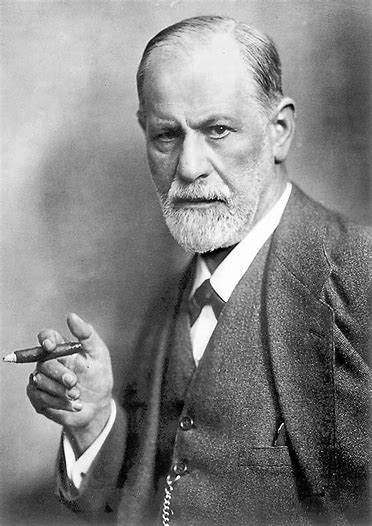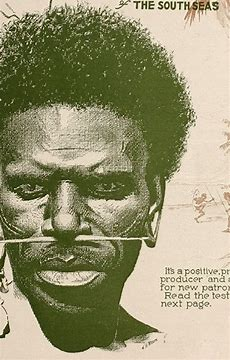F.P. Davis was no different from any other man - locked in perpetual cycles of sexual ambition. As a young man, free as a bird, a knight among maidens, and as an older man, delighted with an affair with a much younger woman. A gift under the Christmas tree.
"She is not my first love nor my best love; but she certainly is my last love", says the Coleman Silk character in Phillip Roth's The Human Stain, "and that has to count for something"; and so it was with Davis whose good fortune fell into his lap. "It's all about the sex, isn't it?", says his friend Nathan concerned about Coleman’s risky adventure with the former wife of a psychopath, and she a janitor and farmhand.
And what if it is? replied Coleman. Who said that careers or life cycles must match? At my age nothing matters but one last swig from the jug.
Coleman's affair with the young Faunia ends badly, but his violent murder was long foreseen, deliberately ignored because if he were to die in her bed, it would be the last and fittingly bloody act in the melodrama that is and always will be the story of men's obsession,
Tolstoy remarked that God's greatest irony was to have created man, an intelligent, sensitive, insightful, creative, and compassionate being; but to have given him only a few scant decades of life. Davis' irony was far more immediate - for God to have created men with a lifelong desire for sex and given him but a few short years to satisfy it.
Davis would eat what was on his plate. Lisa would not ordinarily be his cup of tea; but age and the race against impotence and senility trumps all. He would take this accountant from HR and see where the affair took him. There could be no consequences. Lisa, no matter how tearfully she considered the idea of marriage and children with him, she must have known it was not in the cards. A dalliance, a restorative balm, an adventure for him; a sad, dismal return to Iowa for her.
When it came time for confession, Davis wondered what he would say to the priest after so many years of neglect. Did he regret the trysts and cinq-a-septs of his the early years? The later, more serious affairs? Or this, the ultimate end to a short, happy life? If one were compelled by the firing of genetic synapses, driven by Freudian imperatives and just plain Casanova envy, then how were his sexual meanderings wrong? He had nothing to confess,
Why did America so differ from Europe? Davis wondered. Both French President Mitterrand's wife and mistress attended his funeral, and later President Sarkozy kept his lover at the Elysees. Why, after two hundred and fifty years were Americans still under the yoke of Cotton Mather, Salem, and the Puritan clerics?
'I wish I had been born black', reflected Davis, jealous of black ghetto sex around every corner machismo, or a West African life of serial lovers. Why had the stars aligned to give him Harlan F. Davis, Esq. and Elizabeth Warner Longworth as parents - privileged, honorable, and straitlaced American nobles of Beacon Hill and Newport?
In what society was sexual ambition uncritically viewed? Forget the rutting of Africans whose society has been stalled because of a lack of any restrictions or the South Sea Island cannibals freed from prying censorious eyes but who never evolved from a coconut mentality. Sexual libertinage always seemed to have consequences.
Yet every man he knew, every man in fiction, every man in history wanted a bit on the side. No man was satisfied with Kinder, Kirche, Kuche - wives of propriety and good sense, a stable home and family livelihood. No matter what the wife, the circumstances, or the prospects, men were born to run.
A good thing, certainly, that half the human race is responsible; but such responsibility is at the root of the war between the sexes. Men fleeing hectoring, pestering wives is the norm. Maybe if women shared the same irresponsibility as men, married life would be a more congenial arrangement. No more lipstick on the collar.
French men have always had mistresses - kept women quite satisfied with the arrangement. Sex, after all, has always been an economic arrangement marriage or not. There is nothing sacrosanct about official recognition or church blessing. Men and women have always married for money, status, refuge, or promise; so what difference did a contract make. No one chirped at the women of the haute bourgeoisie or the aristocracy. Their lives were far better than lives of quiet humility. How did marriage to a bureaucrat with tenure and pension best the life of the concubines of the 16th who retired to the south of France happy and well?
The sexual revolution has had its day, and so has its counterrevolution, its reform, its feminism, and its settlement; but despite everything, women still want their nails dug deep into the flesh of complaisant, compliant husbands. Women may have LLB, PhD, tenure, partner, and portfolio, but they cannot leave well enough alone. The errant husband does not belong here.
And so were the gives and takes of the sex life of F.P. Davis, an ordinary man propelled by the same desires as tribal herdsmen, French presidents, and Salem prosecutors. He wanted all the sex he could get, a sequential harem of beautiful women, refreshed and renewed within marriage and without, a virtual sexual cornucopia without end.
He ended up with far fewer women than hoped for; and if he had any regrets as he folded into his last decade, it was not having more. Such is men's sorry, ironic fate; and F.P. Davis played the cards he was dealt with patience, persistence, and aplomb.







No comments:
Post a Comment
Note: Only a member of this blog may post a comment.